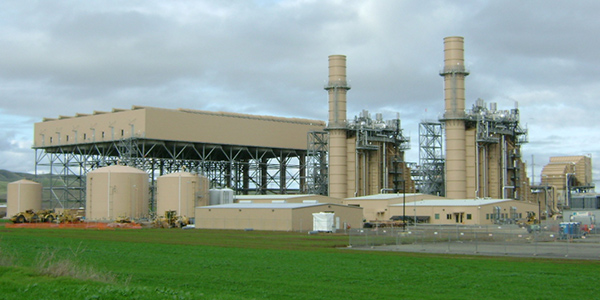CAISO last week won FERC approval for its second effort to implement market rule changes to allow generators to recover the costs of higher natural gas prices (ER20-2360).
The changes emerged from CAISO’s Commitment Costs and Default Energy Bid Enhancements (CCDEBE) initiative. FERC rejected an earlier filing by the ISO in 2019, saying its generous multiplier for gas resources was neither fact-based nor warranted.
CAISO’s revised plan, which eliminated the multiplier, measured up, FERC said.
“We find that CAISO’s CCDEBE proposal will allow resources that face high gas costs resulting from inter-day variation in natural gas prices to reflect those costs in their reference levels,” FERC said. “By reflecting the actual costs of these resources in reference levels, CAISO’s proposal will facilitate a more efficient dispatch of its system.”
Order 831 Compliance
The ruling was one of two that FERC issued Sept. 21 involving CAISO’s efforts to comply with Order 831.
Issued by FERC in 2016, Order 831 requires ISOs and RTOs to raise the hard caps on supply bids from $1,000 to $2,000. Offers over $1,000 require suppliers to justify their costs. It’s meant to allow supply resources, especially gas generators, to earn prices sufficient to recover their operating costs during periods of high demand, thereby helping to ensure reliability.
To comply with the order, CAISO proposed revising its Tariff with a two-tier bid cap structure. The plan includes a soft cap of $1,000/MWh — which would apply to all energy bids except for virtual bids and those for non-resource-specific system resources — and a hard cap of $2,000/MWh, which would apply to all energy bids.
CAISO’s Department of Market Monitoring objected, arguing that the ISO’s proposed provision regarding verification and recovery of minimum load cost bids was unclear and unsupported.
FERC dismissed the objection and said the revisions complied with the requirements of Order 831, subject to a further compliance filing to update certain eTariff records (ER19-2757).
“We find that, as required by Order No. 831, CAISO’s Tariff revisions proposed herein and reflected in the 2020 CCDEBE proposal set forth the process for CAISO to verify that a resource’s bid above $1,000/MWh reasonably reflects that resource’s actual or expected costs,” FERC wrote.
‘Natural Gas Price Volatility’
In the cost-recovery ruling, FERC said it had rejected CAISO’s 2019 CCDEBE proposal because the ISO failed to show that it was just and reasonable to apply a 125% multiplier to commitment cost bid caps derived using supplier-submitted costs.
“Specifically, the commission stated that ‘whereas a multiplier applied to an index captures deviations from an average cost, and therefore may account for resource-specific cost deviations from the index, a multiplier applied to supplier-submitted costs would provide additional headroom on top of verifiable actual costs’ and that CAISO had not provided sufficient evidence to support this upward adjustment,” FERC wrote.
In its revised proposal, CAISO altered its methodology, including eliminating the multiplier from its plan. Instead, it submitted changes that let suppliers request adjustments to their ISO-calculated commitment costs — their start-up and minimum load costs — and to their energy-price reference levels to more accurately reflect their costs.
“CAISO asserts that the proposed revisions will provide a just and reasonable method for verifying a supplier’s request to increase a resource’s reference levels when its actual or expected costs will be greater than CAISO-calculated costs based on verifiable contemporaneously available information,” FERC wrote.
“CAISO explains that these procedures will enable it to use fuel or fuel-equivalent prices in calculating reference levels that reflect suppliers’ actual or expected fuel or fuel-equivalent costs,” it said. “CAISO contends that this, in turn, will provide CAISO with more efficient resource schedules and dispatches and will ensure that suppliers are adequately compensated.”
FERC agreed with CAISO’s assessment.
“CAISO’s proposal to adjust the reasonableness threshold in response to inter-day fuel price increases in a fuel region, and in response to persistent conditions faced by a resource, will … ensure that its markets accurately reflect natural gas price volatility, which in turn will result in dispatching resources more efficiently,” FERC said.
“Additionally, we find that CAISO’s proposal to exclude existing commitment cost and default energy bid multipliers from the calculation of a resource’s adjusted reference level is just and reasonable and addresses the concerns that led to rejection of the 2019 CCDEBE proposal,” it said. “Under CAISO’s proposal in this filing, reference level adjustments will be based on a resource’s actual or expected costs and will not provide additional headroom above a resource’s verifiable actual or expected costs.”





